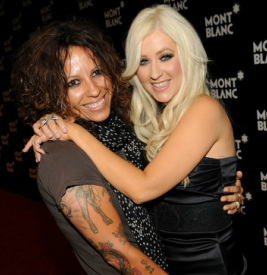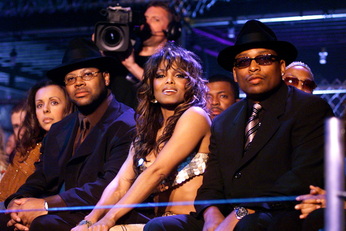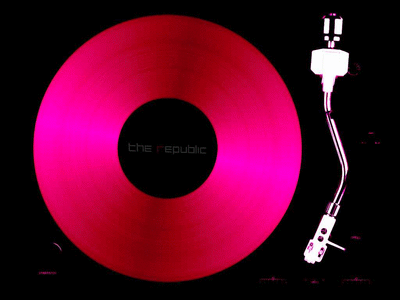
When we listen to music, we typically attribute our listening experience to the person on the album cover, not considering or forgetting that there are MULTIPLE people behind the scenes who made that album happen. Of the more vital figures in the recording process are producers; many of whom could walk right by us in the grocery store and we would never know that they’re the reason behind our favorite song’s existence (no, not every producer is a key-name with a solo record or shouts out their name at the beginning of every song). If you don’t already know, producers are generally responsible for the musical (and sometimes vocal) arrangement. Every so often, producers also contribute lyrics. When an artist releases subpar music, they themselves are often blamed, but the producers are really the ones who should take the bag. If they do their job, producers can make a barely talented artist average or good artist great. Many of your favorite artists might not be as successful without them. Here’s a list of some big names that only go as far as their producers. You might be surprised at who you see on the list.
#5 Trey Songz, Key Producer: Troy Taylor
Okay, I may get some flak for even putting Trey Songz in a category that has “artist” in the title, but in my defense, Songz was actually listenable and kind of unpredictable once upon a time. Now, this isn’t one of those deluded “Oh, he sounded so much better and he didn’t just sing about sex in the early days” rants, because let’s be honest: he’s sung about sex since his first album and in abundance. However, the difference from the “Gotta Make It” album’s sex songs and those on “Chapter Five” is the music and the little fantasies he and his songwriters left to the imagination by not being overtly explicit. His first album, which is considered an R&B classic, was almost exclusively produced by Troy Taylor. Don’t know Troy? His credits include Whitney Houston’s remake of “I’m Every Woman,” Tyrese’s “Sweet Lady,” Toni Braxton’s “Just Be a Man About It,” Aaliyah’s “Miss You” and B2K’s “Why I Love You” (one of their few good songs), just to name a few. As time progressed, more people got added to the mix on Trey’s albums, making a cesspool of forgettable songs. Not to discredit the other producers who have come and gone on the Songz bandwagon, but there’s just no genuinely amazing music-to-artist chemistry by the time he gets to “Passion, Pain and Pleasure.” We saw the foolery when Taylor wasn’t featured on “Trey Day” and songs like “No Clothes On” made the cut. Even with big names like R. Kelly and Stargate, Songz came off as corny, lackluster or like a Diet R. Kelly. Yet, “Ready” filled the void for the general public and guess whose name showed up in the credits the most as a producer? Troy Taylor. “Jupiter Love” anyone?
#4 Christina Aguilera, Key Producers: Too many to list
So Aguilera is great for this list because she makes two points: 1) some artists are only great with a select few producers and 2) NEVER burn bridges that’ll keep you from getting to your hometown.
The interesting thing about Christina is that she doesn’t really work with anyone more than twice album wise; the only common denominator is Linda Perry who frequently appeared on “Stripped” and “Back to Basics.” I won’t make this into an argument for which albums have been successful or not, because that doesn’t really qualify the greatness of the music. Let’s just say that “Bionic” and “Lotus” haven’t musically put Ms. Aguilera in the best light. Her self-titled debut was an amazing mix between bubble-gum pop and R&B tracks to show off her vocal versatility, and gave her a solid foundation to attract audiences to both catchy songs and her amazing voice, without her even having to touch a pen. By “Stripped,” Aguilera began to take full control and write songs about social and personal issues, which is probably why most of her fans hold the album to such a high standard. The producer behind the bulk of this feat? None other than Scott Storch, who gave the project grungy, raw undertones that made it such a classic to most listeners. Other significant ingredients included Linda Perry’s musical softness and vulnerability in the ballads and the catchy, yet soulful touch of Matt Morris, who co-wrote over half of it (Morris is responsible for Kelly Clarkson’s “Miss Independent,” which was originally written for “Stripped”).

#3 John Legend, Key Producer: Kanye West
Mr. Legend for the most part has ALL of the necessities of a popular artist: multifaceted talent (singing, writing AND composing), a good niche (playing the piano) and a marketable personality. However, the greatest talents would fall short without the right producers, so who would be better to open their booth for Legend’s music to thrive than Kanye West? No one. Primarily produced by West, Legend’s debut “Get Lifted” was, for the most part, phenomenal. So much so, he could easily write a book called “How to Make an Epic Debut Album.” It was a musical journey of tear-jerkers, comedic playfulness and feel good music that attracted many demographics. Genuine soul and cohesiveness was there and continued on his second album “Once Again,” even though he cut West down to one song. However, the high energy died and “Once Again” was an overly mellow, mid-tempo album, depending on sampled beats to keep the attention of the listener. Legend apparently thought it would be a good idea to try and recreate “Lifted’s” excitement with “Evolver,” but “Evolver” proved to be his most forgettable album to date. The first few songs had vigor (all produced by Malay and KP), but by the time we got to the album’s climax of “Good Morning,” we were ready for bed time. The song concepts were extremely redundant, peddling on promises to “do right” and “show his love.” The compositions became very repetitive, as more and more producers came into the mix, Will.i.am being the most underwhelming with “Satisfaction” and “Cross the Line.” The album is what I call “good, forgettable music;” you smile and nod your head, but a few days later, it’s almost as if you’ve never heard anything from it aside from the singles. Legend ultimately proved how important good producers who understand your music’s vision and your craft are.
#2 Janet Jackson, Key Producers: Jimmy Jam & Terry Lewis
Janet is great for the saying “if it ain’t broke don’t fix it,” because ever since “Control,” Janet, James “Jimmy Jam” Harris and Terry Lewis have been the dream team for EVERY amazing Janet project. From 80s dance, to New Jack Swing, pop and country, Jam and Lewis were masterminds at creating tailor made music for Ms. Jackson’s soft, yet versatile voice. What opened the gate to the foolishness known as “20 Y.O.” and “Discipline” was surprisingly, the “Damita Jo” album. “Damita Jo” was mainly produced by Jam and Lewis, but they were starting to allow too many other producers to sit at their ‘cool kids table.’ Some stood and delivered like Kanye West in “My Baby” and the amazing Babyface on “Thinkin’ Bout My Ex,” but others like Dallas Austin, despite being immensely talented, missed the target by a few inches. I’m sure this sparked an executive meeting along the lines of “maybe we should just start putting Janet in the studio with ALL the new producers! That will be great marketing! We can even feature more rappers on her albums,” and thus “20 Y.O.” was born.

#1 Mariah Carey, Key Producers: Walter Afanasieff, Jermaine Dupri (with help from others)
Mariah is probably my most favorite artist of all time: her songwriting, voice and uplifting spirit all speak to the soul; however, she shockingly fits the bill for this list. Carey’s case is the most different because she takes the Janet rule mentioned earlier to higher heights. She’s been very formulaic since her debut album, but still managed to create masterpieces that will be passed on for many generations. Now, those masterpieces are all (mostly) produced/co-written by Walter Afanasieff. I know you don’t know who that is, but name your favorite 90’s Mariah ballad… Afanasieff co-wrote it. “Hero,” “Butterfly,” “My All,” “One Sweet Day,” and the ballads that weren’t singles were all him (musically). Carey and Afanasieff are a match made in musical heaven. So, I’m sure you know where this is going. They allegedly had a dispute that caused them to part ways right at the start of making the “Glitter” soundtrack, and the magic that was the “Mariah ballad” seemed to die right after the album’s release. “Glitter’s” highlights were the softer songs, but just about everything on it was easily skippable. “Charm Bracelet" was ok and had about 5 or 6 gems, but it seemed like a collection of Carey trying too hard.
The more producers she worked with, her albums started to sound like attempts at recreating old hits. However, Mariah’s songwriting talent is so infallible that she pulled it off well enough where newer fans didn’t notice (I mean, “Lover Boy” AKA “Heartbreaker Part 3” went platinum for goodness sakes). By the time Mimi was “emancipated” 3 years later, Mariah re-packaged her sound and her voice, leaving the attempts at creating epic ballads to a minimum and instead invented a modern sound that would suit her current voice best. The masterminds behind “The Emancipation of Mimi” were Jermaine Dupri and company. The “company” is very important because I honestly feel as though Dupri doesn’t have the musical chops to pull off full album production on his own; at least in R&B anyway. On songs like “Shake It Off” and “We Belong Together,” Dupri had help from Bryan Cox, Manuel Seal Jr. and J. Austin, while James Wright and James Poysner ensured that she had 3 classics: “Mine Again,” “Circles,” and “Fly Like A Bird.” The follow-up to “Emancipation,” “E=MC2” was less than brilliant. Attempting to be more commercial, she worked with T-Pain, the Dream, and again principally, Jermaine Dupri. The other producers from “Emancipation” were present, but it was clear that Dupri was in the driver’s seat, allowing the bass to overpower Mariah’s voice and compartmentalizing her voice to sing over forgettable ditties. By the “Memoirs of an Imperfect Angel” album, all hope was lost as the Dream and Tricky Stewart got hold of 90% of the album’s production and songwriting. I don’t think there’s one memorable (original) song on that album. Yes, Mariah can pull just about anything off with her voice, but even with a 5 octave range, she can’t pull off the impossible. Mariah needs to learn to trust her musical instincts more and work with the producers who have the musical veracity to wow her audience like she did for roughly the first 15 years of her career. A legend shouldn’t be forced to make forgettable albums just because most of the newcomers are doing it.


 RSS Feed
RSS Feed